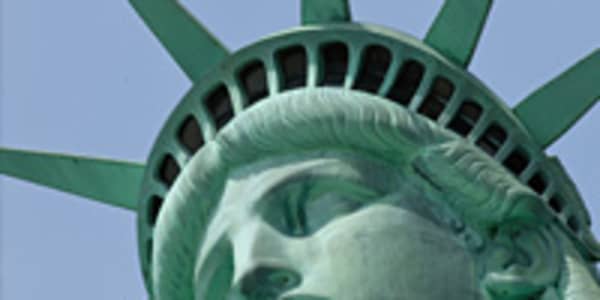Stories of Serial Entrepreneurs
Serial entrepreneurs can’t seem to stop at one business, and don’t let failures throw them off course. While some of the best-known entrepreneurs, such as Richard Branson and Oprah Winfrey, have earned billions of dollars from their ventures, for many it's less about the potential for making money and more about the excitement of creating and nurturing a company.
Some serial entrepreneurs started their first homegrown businesses as children, while others got inspired as adults. They may be driven by their passion for a particular type of business, by the very idea of starting a business or by seeing a need that can be filled at a profit.
They tend to be independent, creative and energetic, and run the gamut from those running regional ventures to tycoons like Branson, whose business grew from a mail-order record store to a global, multi-industry conglomerate.
In many cases, serial entrepreneurs are able to use the proceeds from one success to build another, turning scrappy startups into valuable ventures that were either sold for millions of dollars or taken public. While they may share many traits, each entrepreneur has a path, and a story, all their own.
By Dinah Wisenberg Brin, Special to CNBC.com
Posted 21 Dec 2011
Anthony Mongeluzo
Companies started: Pro Computer Service, pilotLight studios, Dynamic Telecom Solutions
Anthony Mongeluzo started his “first professional company,” Pro Computer Service, at age 21 from his parents’ home. “I had other companies in my teen-age years,” says Mongeluzo, who remains president and CEO of the Marlton, N.J., information technology firm. PCS has gained recognition as one of the fastest growing companies regionally and nationally, and has more than $5 million in annual revenue, 25 employees and offices in four states.
Since starting PCS, Mongeluzo, 31, has formed several other companies, including application developer pilotLight studios, real estate firms Monge Realty LLC and Pro Realty LLC, and voice and data concern Dynamic Telecom Solutions. In 2011, he bought into Agency Telecommunications, a Bellmawr, N.J., phone systems and VOIP company. Mongeluzo, who is president of pilotLight and Monge, and wholly owns most of the companies he founded, says that his strategy has been to fill needs that others aren't filling. "My goal with all of the businesses is to grow, create more jobs, and provide national services. I plan on personally being involved for many years to come."
Ellen Thompson
Companies started: Know It All, 4 Walls
Ellen Thompson has been starting and running companies for 20 years. Her first venture — an ice cream parlor and video store — went bust, but her entrepreneurial instincts were just kicking in. In 1993, Thompson was founder and CEO of skills testing firm Know It All, which then-private Kenexa Corp. (KNXA) bought for more than 300,000 shares in 2000. Kenexa went public in 2005 at an offering price of $12 a share. By then, Thompson had already started another company 4 Walls, where she currently serves as CEO. The company, based near Philadelphia, helps apartment owners and other businesses use social media and search engine marketing to attract customers.
“I love being a part of great teams that create and deliver compelling, competitively priced products and services,” says Thompson, 43. “I deeply value the relationships I build with customers. Keeping them happy drives me to do my best everyday.”
James Currier
Companies started: Jiff Inc., Ooga Labs, Tickle
James Currier started his entrepreneurial career selling worms to fishermen at age 6 and opened a store in a cleaned-out broom closet in his school cafeteria in the 8th grade. He started 18 “little ventures” by the time he graduated from Princeton University.
Currier compares serial entrepreneurs to movie directors, who take a few years to bring a project from concept to market, and then start all over again. As an adult, he has been involved in several startups. He is currently executive chairman and lead investor of Jiff Inc., which makes HIPAA-compliant mobile software for the medical industry and is CEO and co-founder of Palo Alto-based Ooga Labs, which helps develop medical software, mobile and e-commerce startup companies.
Currier and his business partner sold their online self-assessment business, Tickle, a pioneer in online viral marketing, to Monster Worldwide (MWW) in 2004 for $110 million. “Entrepreneurs believe they are the locus of control of what’s happening to them,” Currier says. “Entrepreneurs want to form the world as they think it should be.”
Janet Kraus
Companies started: Circles, Spire
Janet Kraus loved selling Girl Scout cookies so much that one time, as she went door-to-door taking orders, she lost track of where she was. She had to ask customer if she could come inside and call her parents. “I would just get in this zone,” says the Harvard Business School senior lecturer, who has started and sold two businesses. She co-founded concierge service Circles and developed it to $50 million in revenue, then sold it to Sodexo (Euronext: SW) in 2007. The next day, she started leading Spire, a high-end travel-related social media business that she sold to Perfect Escapes in 2010.
Kraus, who now invests in startups and sits on the boards of early-stage companies, likes the startup phase of a business. “It’s fun, it’s electric, it’s like nothing else,” she says.
Rod Drury
Companies started: Glazier Systems, AfterMail, Pacific Fibre
New Zealander Rod Drury transformed his teenage fascination with computer technology into a career as a serial entrepreneur. He helped found several businesses, including software company Glazier Systems, sold for some $7 million in 1999, and e-mail intelligence concern AfterMail, sold to Quest Software (QSFT) for $15 million (plus potential performance-based consideration) in 2006.
Drury is now a director of the New Zealand Stock Exchange, CEO of online accounting portal Xero, and founder and director of Pacific Fibre, which aims to build high-capacity underwater cables to connect Australia to the United States. In a recent interview with CNBC.com, he said he expects Xero to be his last CEO stint but plans to stay in the technology industry as a board chairman and investor.
Josh Kopelman
Companies started: Infonautics, Half.com, TurnTide
Josh Kopelman, managing director of First Round Capital, a seed-stage venture fund, has been forming and investing in Internet companies for two decades. While attending the Wharton School at the University of Pennsylvania in 1992, Kopelman co-founded Infonautics Corp., which went public in 1996. Three years later, he hit on a successful formula when he founded Half.com, an online source for used books and music. Just one year later, it was acquired by eBay. He also co-founded anti-spam venture TurnTide; in six short months, it was acquired by Symantec Corp.
Kopelman has an eye for successful companies. His Web site lists several startups he’s invested in, including StumbleUpon and mint.com. Even with all his successes, Kopelman acknowledges missed opportunities. On his blog, Redeye VC, he wrote a “woulda, shoulda, coulda” post earlier this year about a decision not to invest in Twitter in 2007. “Big mistake,” he wrote.
Gerard Ferro
Companies started: Free for All, Simcare, SUNRx
Gerard Ferro has set up and run health and technology businesses for more than two decades. He co-founded and serves as CEO of Free for All, a prescription-discount business based in Marlton, N.J. In the late 1980s, Ferro co-founded and served as CEO of Simcare, a health provider network he later sold to a Blue Cross Blue Shield organization. He also cofounded and served for years as chairman and CEO of SUNRx, a pharmacy benefits management concern that he says grew under his leadership to $49 million in revenue in its first five years.
“Being an entrepreneur puts the ball in my court so I am not depending on anyone other than my faith and myself,” Ferro, 52, says. “There are many things that I have to be responsible for, but it is my decision on how I deal with those issues. The freedom of being an entrepreneur is nothing shy of magical.”
Harpal Sandhu
Companies started: Infinity Financial Technology, Integral Development Corp.
Harpal Sandhu is president and CEO of Integral Development Corp., a Sunnyvale, Calif.-based company he co-founded in 1993 that calls itself the only multi-sided trading network for foreign exchange. Earlier, he was founder and president of Infinity Financial Technology, which software company SunGard Data Systems acquired in 1998. (The deal was valued at $313 million when announced in October 1997).
On Integral’s blog, Sandhu relates that early on, he considered the Internet a great tool for transferring financial instruments. “I have been a strong promoter of this aspect of e-commerce ever since and built successful companies around it,” he writes on Integral’s blog.
Richard Branson
Companies started: Virgin Group
Sir Richard Branson’s Virgin Group global media, travel and financial services empire originated in 1970, when the entrepreneur, then about 20, started a mail-order record business, followed shortly thereafter by a record shop in London. Within two years he had built a recording studio, where Mike Oldfield recorded the popular instrumental “Tubular Bells.” Virgin Group now has some 200 companies in more than 30 countries.
Branson uses his wealth and celebrity to promote various social causes. He’s also a prolific blogger and is promoting his new book, “Screw Business as Usual.” In an early December blog post, Branson acknowledged the concerns of Occupy protesters, while noting that “there also are a lot of companies and individuals using business as a force for good and not just profits.”
Oprah Winfrey
Companies started: Harpo Productions, Oprah Winfrey Network
Oprah Winfrey started her broadcasting career in high school and has parlayed it into a media empire that made her a billionaire and includes a group of businesses across television, radio and magazine publishing. Her Oprah Winfrey Network, OWN, launched in 2011 and is available in nearly 70 percent of U.S. homes, according to her website. Forbes estimated her net worth at $2.7 billion this year.
On her success, Winfrey has been widely quoted as saying, “I don't think of myself as a poor deprived ghetto girl who made good. I think of myself as somebody who, from an early age, knew I was responsible for myself, and I had to make good.”




